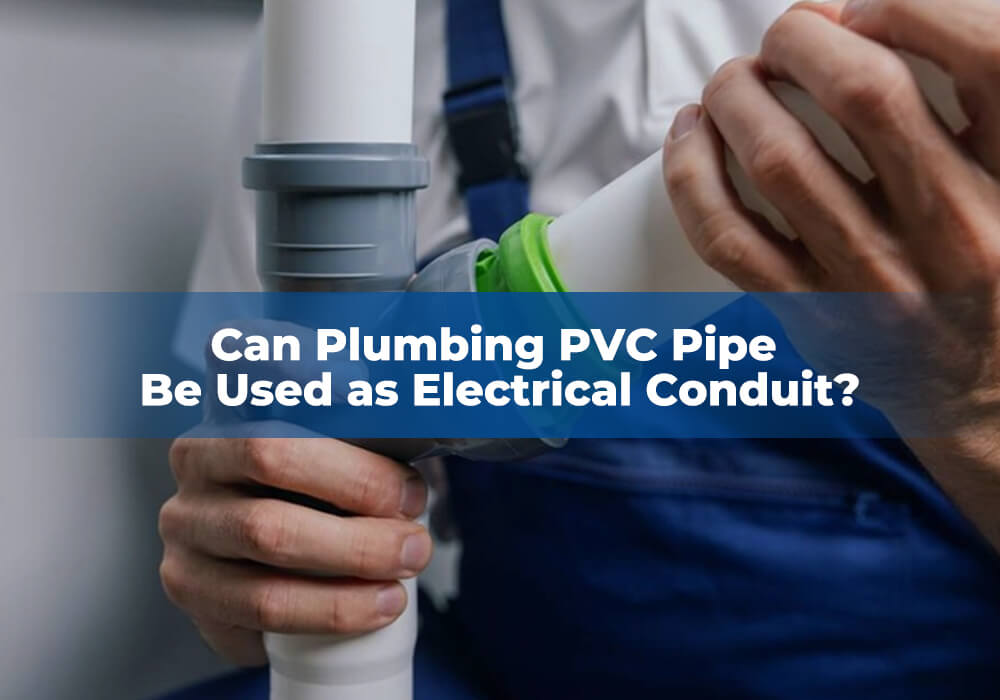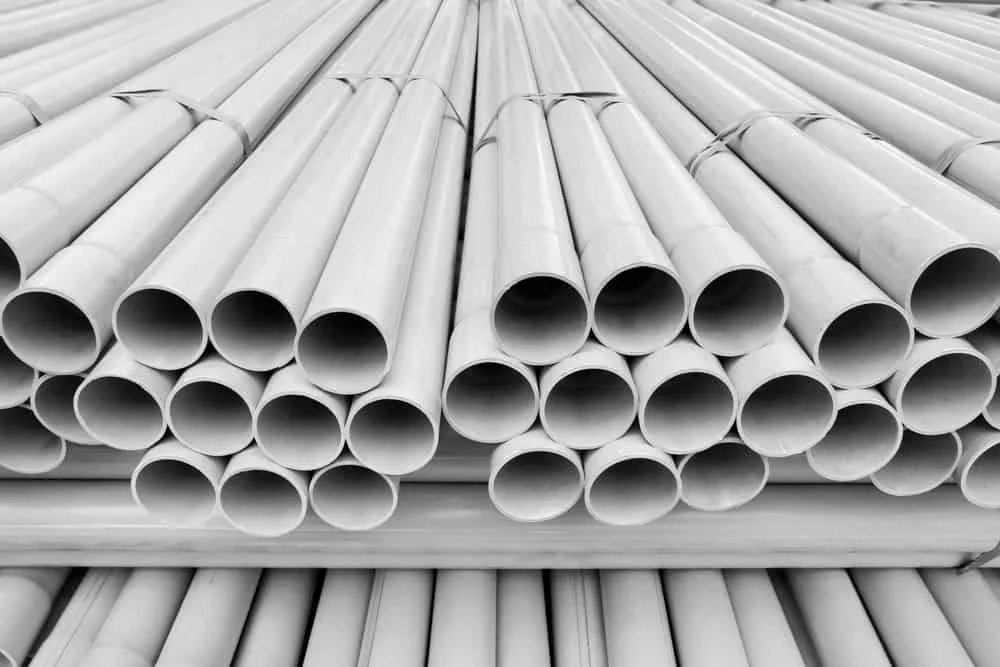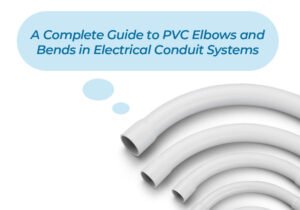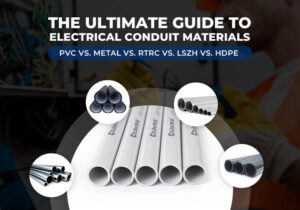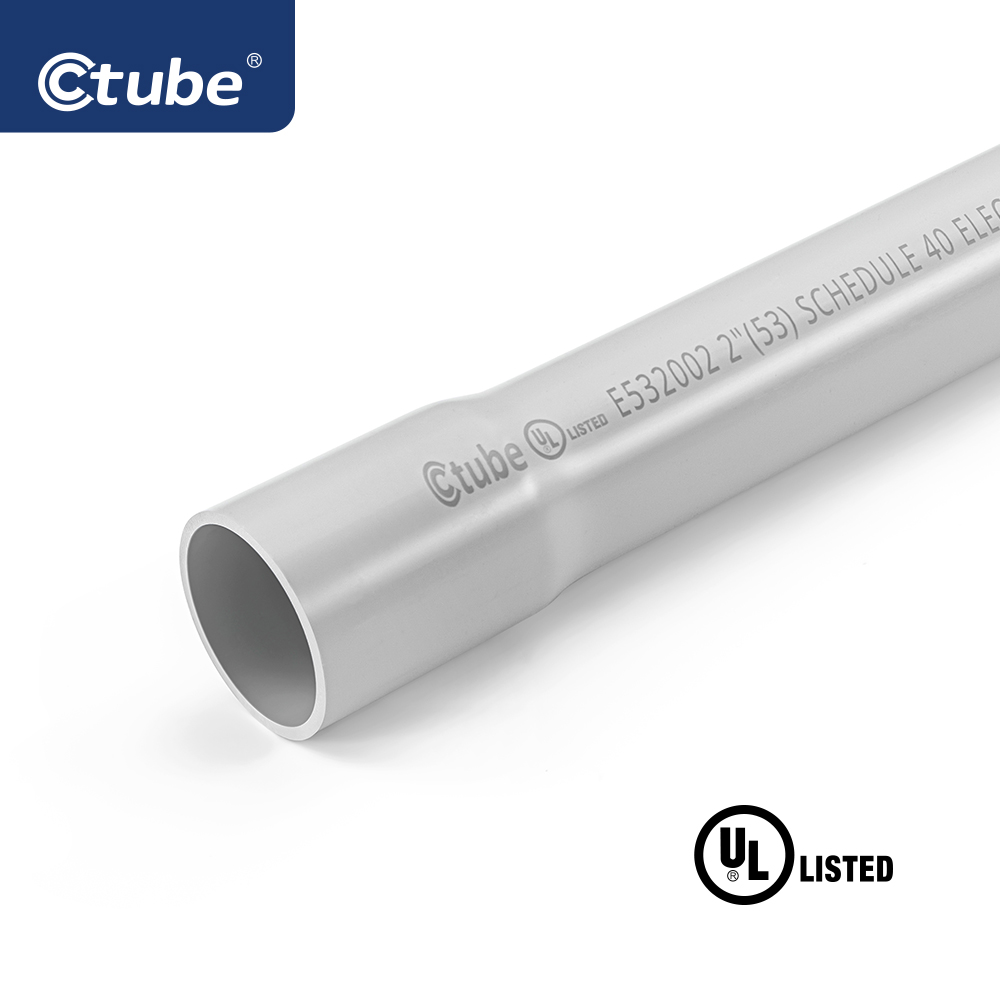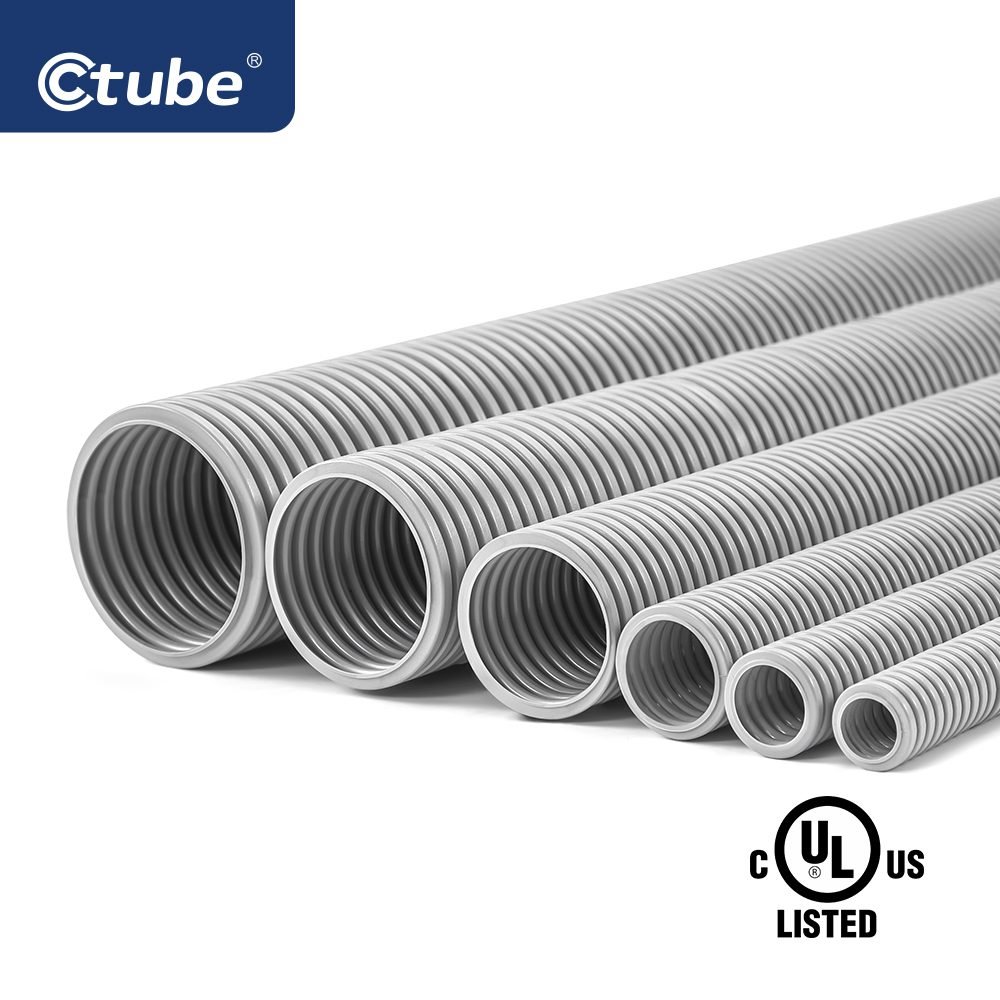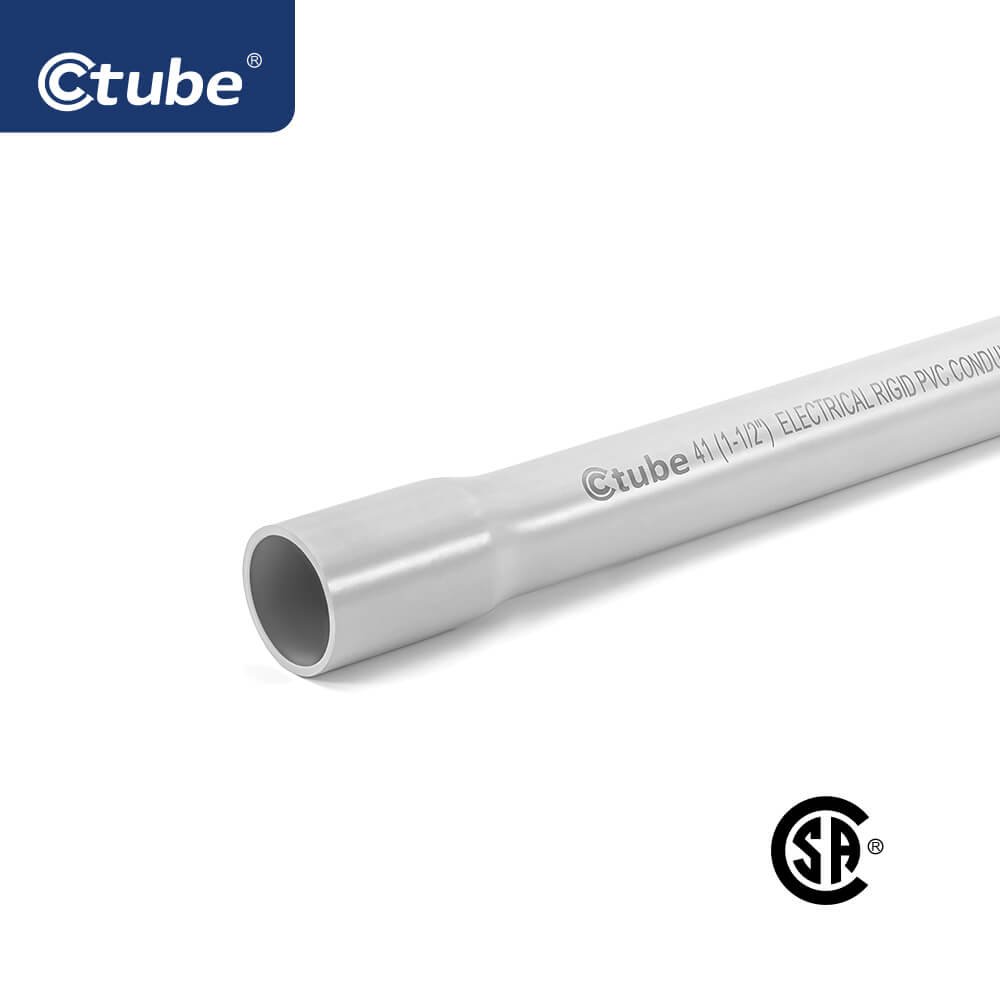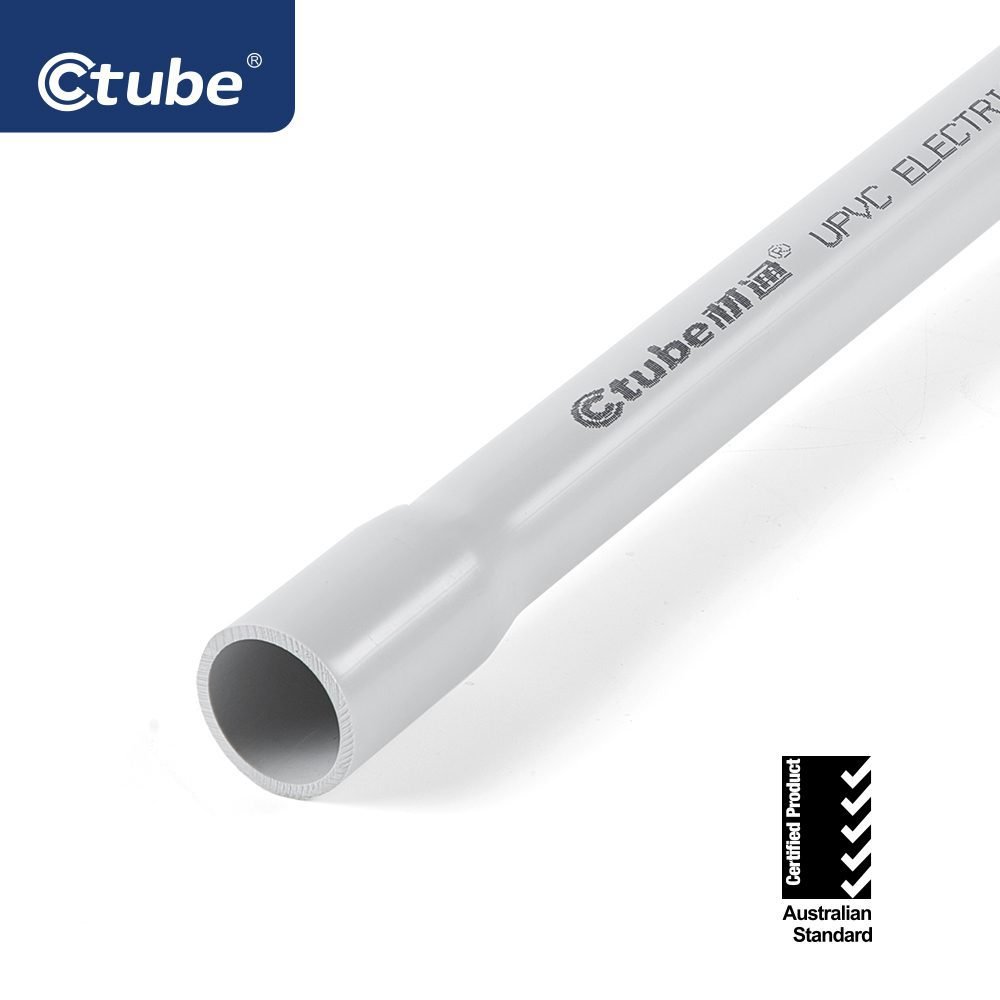When it comes to electrical installations, it is crucial to use the correct type of conduit to ensure safety and reliability. PVC conduit is a popular choice for electrical installations due to its affordability, durability, and ease of installation. However, there may be confusion about whether plumbing PVC can be used for electrical conduit. In this post, we will explore the differences between plumbing PVC and electrical conduit PVC and whether plumbing PVC can be used for electrical conduit.
1.Differences between plumbing PVC and electrical conduit PVC
Plumbing PVC and electrical conduit PVC have some similarities, but they also have some key differences. Plumbing PVC is designed for non-pressurized applications such as drainage and venting, while electrical conduit PVC is designed specifically for electrical installations. Electrical conduit PVC is made with added UV inhibitors, impact modifiers, and fire retardants to protect against electrical hazards, extreme temperatures, and physical damage. Plumbing PVC does not have these added properties and may not provide adequate protection for electrical installations.
2.Potential risks of using plumbing PVC for electrical conduit
Using plumbing PVC for electrical conduit can pose several risks. Plumbing PVC may not provide adequate protection against electrical hazards and may not be able to withstand high temperatures. This can lead to potential safety hazards, such as electrical shocks and fires. Additionally, plumbing PVC may degrade over time due to prolonged exposure to sunlight and weather conditions, which can compromise the integrity of the electrical installation.
3.Applicable codes and standards
The National Electrical Code (NEC) provides guidelines for the installation of electrical conduit, including requirements for conduit material. The NEC requires that conduit must be made of materials suitable for the intended use, and PVC conduit designed for plumbing use is not suitable for electrical installations. It is important to follow the guidelines set forth by the NEC and other applicable codes and standards to ensure the safety and reliability of the electrical system.
4.Alternatives to plumbing PVC for electrical conduit
There are various types of conduit materials suitable for electrical installations, such as steel, aluminum, and PVC electrical conduit. Each material has its advantages and disadvantages, and it is important to choose the right material for each application based on the specific requirements and conditions.
Based on the potential risks and hazards, it is not recommended to use plumbing PVC for electrical conduit. Electrical conduit PVC is specifically designed for electrical installations and provides the necessary protection against electrical hazards, extreme temperatures, and physical damage. As a responsible installer, it is important to follow the guidelines set forth by the NEC and other applicable codes and standards to ensure the safety and reliability of the electrical system.
In conclusion, when it comes to electrical installations, it is crucial to use the appropriate conduit material to ensure the safety and reliability of the electrical system. As a manufacturer of PVC conduit, it is our responsibility to provide high-quality and reliable products that meet the necessary standards and guidelines. Contact us today to learn more about our PVC conduit products and how we can help you with your electrical installation needs.

